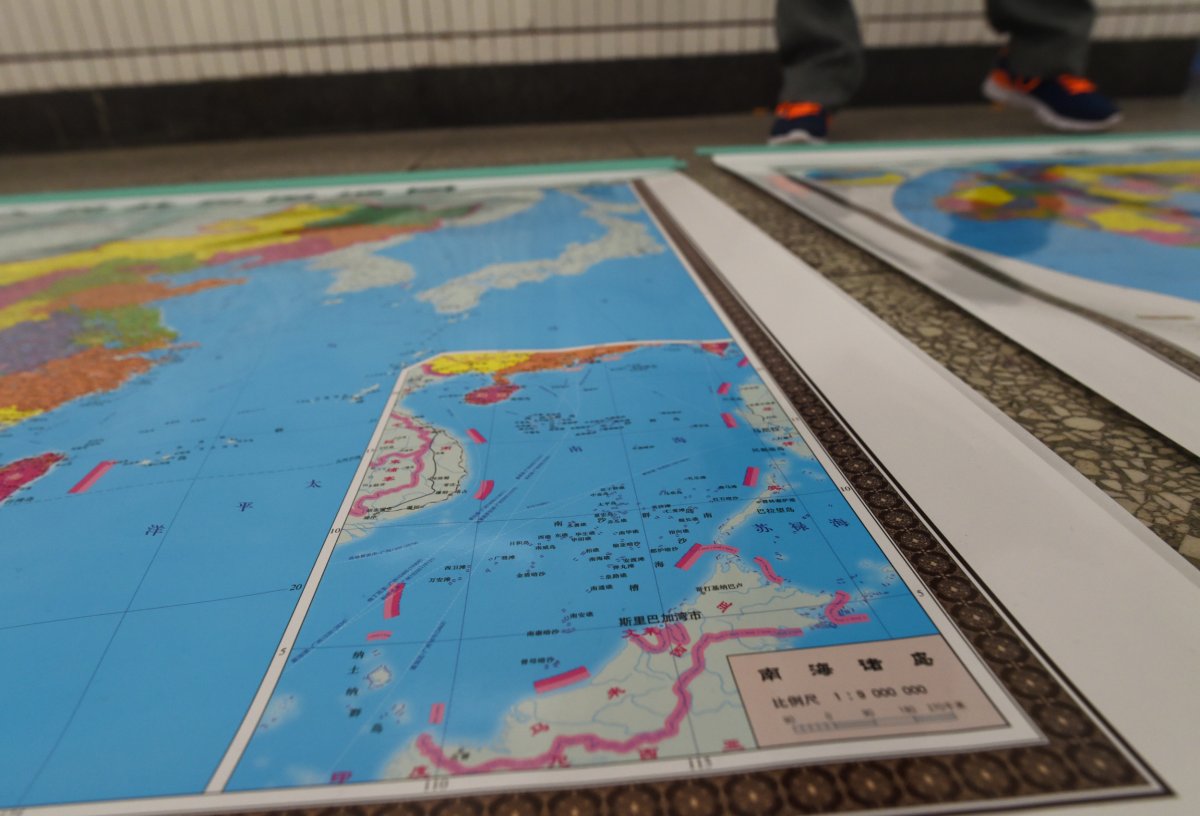China was the first to discover the hotly contested South China Sea, a Chinese foreign ministry spokesperson said Thursday.
The country was also the first to "name, explore, and exploit Nanhai Zhudao (South China Sea islands) and relevant waters," spokesperson Wang Wenbin said at Thursday's daily press conference.
Beijing claims sovereignty over most of the resource-rich South China Sea. Its oil exploration, fishing, coast guard, and paramilitary activities have brought it into conflict with regional neighbors including—most explosively—U.S. defense treaty ally the Philippines.
An international tribunal's 2016 ruling dismissed the claims asserted within China's unilaterally imposed "10-dash line," citing the United Nations Convention on the Law of the Sea, but Beijing has dismissed the ruling as "illegal."
While on a visit to Berlin, Philippine President Ferdinand Marcos Jr. said Tuesday it is "difficult to see a way forward" on talks with China. He pointed out the 10-dash line is not recognized by any nation or international body.
"Our baselines have been well established for years now. We have the economic zone that China has already intruded upon," he said.
China bases its internal waters, territorial sea, a contiguous zone, a continental shelf, and an economic exclusive zone (EEZ) on the South China Sea islands, Wang said when asked to respond to Marcos remark at Thursday's press briefing.
"And China has historic rights in the South China Sea. The above positions are consistent with relevant international law and practice, he added.

Newsweek reached out to the Chinese foreign ministry via written request for comment.
A contiguous zone is an area extending 12 to 24 nautical miles beyond a nation's territorial waters within which coastal states have some jurisdiction. An exclusive EEZ is a 200-nautical mile zone within which a nation can claim the sole right to natural resources.
However, many of the features at the heart of the China-Philippine feud—many of which are considered rocks and submerged reefs under maritime law rather than "islands"— lie within the Philippines' internationally recognized EEZ and over 600 miles from the nearest Chinese province.
Wang said the Chinese government officially declared its dotted-line claims following World War II and that "for a long time, it has never been questioned by any country. China never claimed that the whole of the South China Sea belongs to China."
He accused Manila of deceiving the international community, using the issue to involve "external forces," and disrupting peace and stability in the trade-heavy waterway.
China's claims over large swaths of the sea are less rooted in longstanding historical rights than they are in early 20th century efforts by Chinese nationalists to assert legitimacy at a time when foreign powers were exploiting the country's fragile state, Bill Hayton, associate fellow with the Asia-Pacific Programme at London's Chatham House think tank, said in a 2018 article in the journal Modern China.
"By the mid-20th century, particularly after World War II, China began to formalize these claims through official maps and documents, despite lacking a historical presence or administrative control over these territories," he wrote.
Uncommon Knowledge
Newsweek is committed to challenging conventional wisdom and finding connections in the search for common ground.
Newsweek is committed to challenging conventional wisdom and finding connections in the search for common ground.
About the writer
Micah McCartney is a reporter for Newsweek based in Taipei, Taiwan. He covers U.S.-China relations, East Asian and Southeast Asian ... Read more
To read how Newsweek uses AI as a newsroom tool, Click here.






